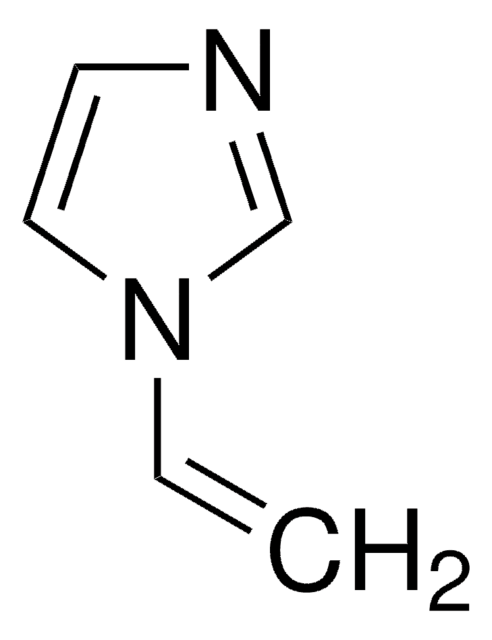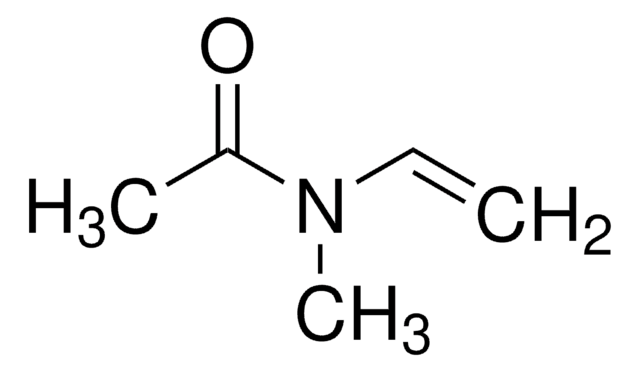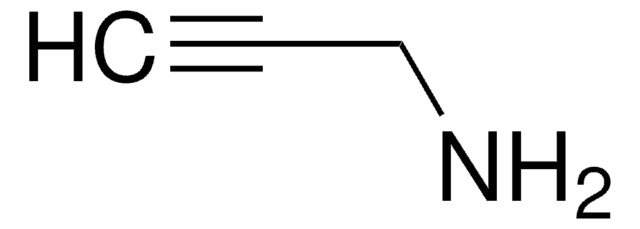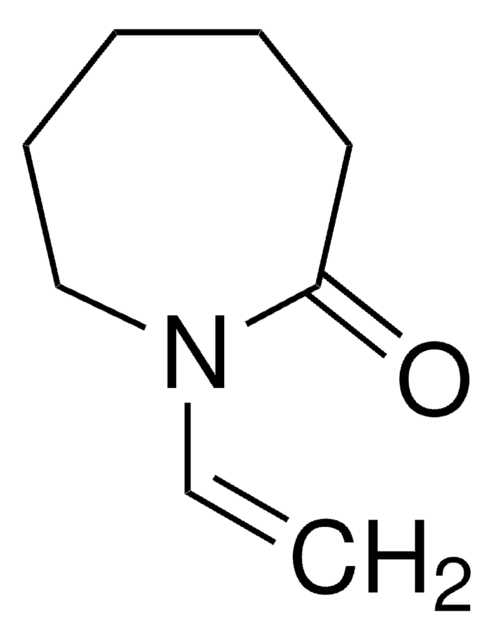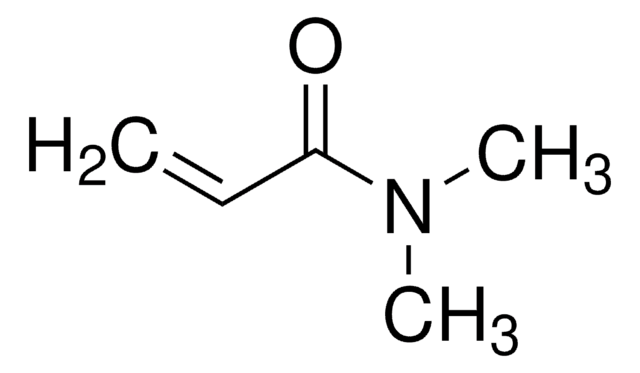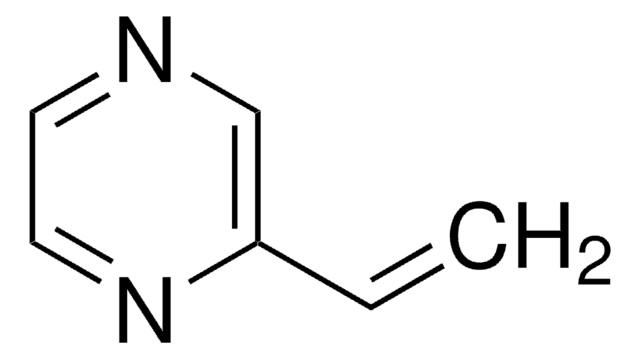447331
N-Vinylformamide
98%
Sinónimos:
N-Ethenylformamide, N-VFA, N-Vinyl-N-formylmethanamine
About This Item
Productos recomendados
vapor pressure
~0.1 mmHg ( 25 °C)
assay
98%
contains
25-55 ppm 4-Hydroxy-TEMPO as stabilizer
refractive index
n20/D 1.494 (lit.)
bp
210 °C (lit.)
mp
−16 °C (lit.)
density
1.014 g/mL at 25 °C (lit.)
storage temp.
2-8°C
SMILES string
[H]C(=O)NC=C
InChI
1S/C3H5NO/c1-2-4-3-5/h2-3H,1H2,(H,4,5)
InChI key
ZQXSMRAEXCEDJD-UHFFFAOYSA-N
General description
Application
- As a monomer to synthesize poly (N-vinylformamide) (PNVF) based hydrogels that can be used for controlled drug delivery.
- To synthesize an aqueous binder for Li4Ti5O12(LTO) anodes in lithium-ion batteries. This helps to enhance the stability and specific capacity of the electrodes.
- To fabricate biocompatible coating for medical devices.
- To fabricate polypropylene membranes for continuous removal of organic micropollutants from water. N-vinylformamide enhances the adsorption affinity of the membrane by inducing multiple hydrophilic and hydrogen bonding sites on the surface.
signalword
Danger
Hazard Classifications
Acute Tox. 4 Oral - Carc. 2 - Eye Dam. 1 - Repr. 1B - Skin Irrit. 2 - STOT SE 3
target_organs
Respiratory system
Storage Class
6.1C - Combustible acute toxic Cat.3 / toxic compounds or compounds which causing chronic effects
wgk_germany
WGK 1
flash_point_f
215.6 °F
flash_point_c
102 °C
Elija entre una de las versiones más recientes:
¿Ya tiene este producto?
Encuentre la documentación para los productos que ha comprado recientemente en la Biblioteca de documentos.
Los clientes también vieron
Nuestro equipo de científicos tiene experiencia en todas las áreas de investigación: Ciencias de la vida, Ciencia de los materiales, Síntesis química, Cromatografía, Analítica y muchas otras.
Póngase en contacto con el Servicio técnico